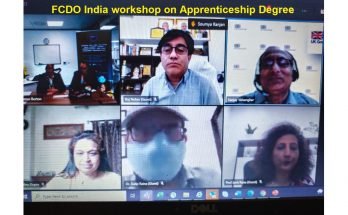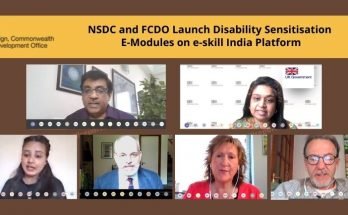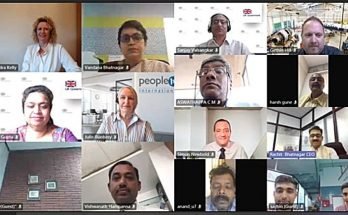The Skills for Jobs (SFJ) programme under the auspices of the Department of International Development (DFID), Government of United Kingdom envisages a shift in paradigm for empowering the persons with disability. As a part of this programme, DFID in partnership with the Maharashtra State Skill Development Society (MSSDS) under their SANKALP project, organized a two-day “Training on Assistive Technology to Support Inclusive Practices” in Mumbai on 2nd & 3rd March 2020.
This training program provided an exclusive platform for the trainers to engage with innovative technologies and their applications as an enabler for their trainings. The training was delivered by the experts from National Star College, an award-winning UK agency specialized in providing in training to Persons with Disabilities (PwDs).
The day started with MSSDS briefing the participants about the importance of providing access to skill training opportunities to the disadvantaged sections. MSSDS being the nodal agency for planning, coordination, execution & monitoring of all Skill Development initiatives of Government of Maharashtra, it is undertaking various initiatives under SANKALP for promoting the inclusion of PwDs and other disadvantaged sections in the mainstream skilling and employment.
The programme emphasized on the role of technology and demonstrated some stellar examples of the same. From the software’s like Microsoft translators to Claro-Lens and Office-Lense to Vevox, the training showcased a range of solutions which can be used by persons with sensory, physical, intellectual or learning disabilities. Participants were demonstrated on the usage of these technologies and facilitated participants to get first-hand experience on using these applications. Participants were urged to incorporate these applications in their training for a more impactful delivery. Adding to the seamless access that technology enables, participants were made aware of the ease of learning and implementation of these technologies.
With discussions on interlacing the technological solutions to the Indian context and the need for fostering them, the event ended with the trainers being more receptive to them. The participants discussed about the various challenges people with disabilities face in learning and the role of technology as an enabler in in learning process. They also discussed the challenges of using technology in teaching, training and employability, and what the areas of improvement. The event concluded with the participants being enriched their knowledge and technical knowledge for enhanced delivery of vocational skills to people with different sorts of disability.



